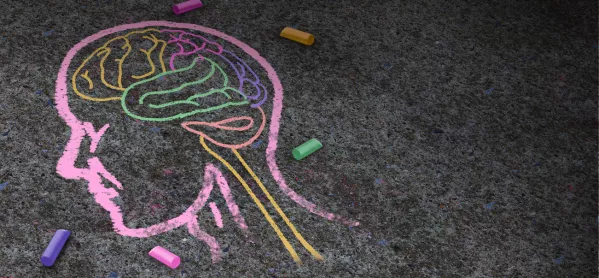Ministers have been urged to investigate the rising number of young people detained for mental health treatment in Scotland.
New figures from the Mental Welfare Commission for Scotland show the detention rate has risen most sharply among 16- and 17-year-olds since 2009-10, from under 20 per 100,000 of population to more than 60.
According to the commission, 16- and 17-year-old males had also experienced the greatest increase in rates of emergency detention per 100,000 population in the past year.
Related: ‘No clear delivery plan’ for school counsellors
Short read: Schools get ‘insufficient information’ on mental health
Opinion: Schools and teachers can ‘do it all’
The commission is concerned about variations in detention across health boards, including in gaining the necessary consent from a mental health officer - described as an “important safeguard for the individual”.
The number of women aged under 25 in short-term detention has more than doubled between 2009-10 and 2018-19, up 122.5 per cent to 316, according to Mental Welfare Commission statistics.
For men in same age range, this has risen 44.6 per cent to 321, it found.
Overall, there were 6,038 new episodes of compulsory treatment under the Mental Health Act in Scotland in 2018-19, the highest since the legislation came into force in 2003.
There are three forms of detention. Emergency detention certificates are used for crisis care and last up to 72 hours. Short-term detention certificates last up to 28 days. Compulsory treatment orders can initially last up to six months.
Across Scotland, half of those subject to an emergency detention certificate in 2018-19 did not have mental health officer consent.
This ranged from 83 per cent in NHS Dumfries and Galloway to 33 per cent in NHS Greater Glasgow and Clyde.
Scottish Labour health spokeswoman Monica Lennon said the rise was “extremely concerning”.
She added: “We know these interventions are sometimes necessary but these should only be used a last resort.
“The Scottish government must investigate why this is happening and if the rise in detentions is linked to the failure of young people to access routine mental health treatment through the NHS.”
‘Concerning’ rise in detentions
The commission’s interim executive medical director Dr Moira Connolly said: “The rise in numbers of times detention is used in relation to young people is concerning.
“We already know of the increased number of children and young people seeking help for mental health issues but we need to understand more about whether those pressures are now being reflected in our data regarding compulsory hospital treatment.”
She said she hoped this issue and others would be considered by the government in its reform of Scotland’s Mental Health Act.
Dr Connolly added: “Compulsory treatment can, of course, be essential for the assessment and treatment of a person who is very unwell but it does restrict an individual’s rights, and must always be used with careful consideration.”
A Scottish government spokesman said: “Our mental health law is based on rights and principles, and offers protection for patients where compulsory treatment is necessary.
“An independent and overarching review of the mental health legislative framework will examine why there has been an increase in compulsory detention and treatment and the reasons for variation in compulsory orders across Scotland.”
He said the interim report would be published in May and the government would work with the commission to ensure the orders were “used appropriately”.
The spokesman added that mental health was a priority for the government, with prevention and early intervention a key focus.
He said: “Any increase in compulsory treatment may represent the effects of more people coming forward for treatment and an increased awareness in mental ill health more generally.”




